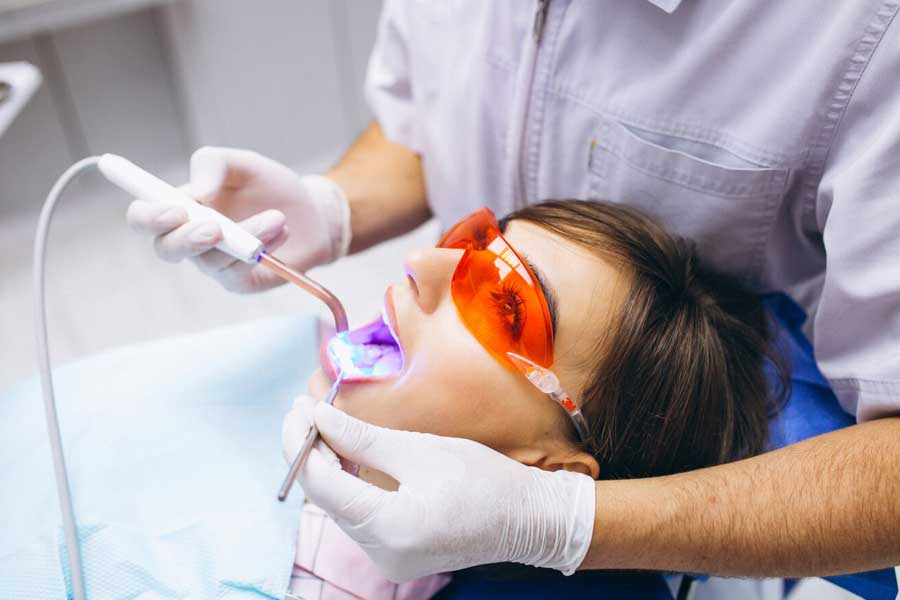
Dental treatments are essential for maintaining not just
oral health but overall well-being. They encompass a wide variety of procedures
aimed at preventing, diagnosing, and treating conditions that affect the teeth,
gums, and mouth. Receiving regular dental treatments is not only vital for
keeping a beautiful smile but also for avoiding more severe health issues that
can arise from neglected oral care.
The foundation of dental treatments begins with
preventive care. This involves regular check-ups, professional cleanings, and
routine X-rays. Preventive dental treatments are designed to catch problems
early on, such as cavities or gum disease, which, if left untreated, can
escalate into more serious conditions. Regular cleanings remove plaque and
tartar that accumulate despite good home care, while routine check-ups allow
the dentist to identify any developing problems, providing advice on how to
improve dental hygiene or recommending further treatments if needed.
Beyond prevention, there are restorative dental
treatments aimed at repairing damage to the teeth and gums. Common
restorative procedures include fillings for cavities, root canals for infected
teeth, and crowns to restore weakened or broken teeth. Dental fillings involve
removing the decayed part of the tooth and filling it with a suitable material,
typically composite resin or amalgam. Root canals, though often feared, are
vital for saving a tooth that has been compromised by infection or deep decay,
preventing the need for extraction. Crowns are used to restore a tooth’s shape,
size, and strength, particularly after a root canal or significant damage.
For those suffering from missing teeth, more advanced
restorative dental treatments such as dental implants or bridges are
necessary. Dental implants are artificial tooth roots placed into the jawbone
to hold a replacement tooth, while bridges are used to cover gaps left by
missing teeth by anchoring artificial teeth to neighboring natural teeth. Both
options are highly effective in restoring both function and appearance,
preventing issues like difficulty in chewing or speaking that result from tooth
loss.
Cosmetic dental treatments are another major
category, focusing on enhancing the aesthetics of one’s smile. These treatments
include teeth whitening, veneers, and bonding. Teeth whitening treatments,
which can be done in-office or through at-home kits prescribed by the dentist,
help remove stains and discoloration, resulting in a brighter, whiter smile.
Veneers are thin shells of porcelain or composite material that are bonded to
the front of teeth to correct imperfections like chips, gaps, or discoloration.
Bonding involves the application of a tooth-colored resin to correct minor
damage or gaps, offering a less invasive option than veneers.
Orthodontic dental treatments, such as braces or
clear aligners, are crucial for addressing misalignment of teeth and jaws.
Misaligned teeth can lead to various issues, including difficulty in cleaning
teeth properly, which can result in tooth decay or gum disease. Braces, which
use brackets and wires to gradually move teeth into their correct positions,
and clear aligners, which are a more discreet option, help not only improve the
appearance of one’s smile but also promote better oral health by ensuring
proper alignment.
Advanced technologies have revolutionized modern dental
treatments, making procedures faster, more comfortable, and more effective.
Laser dentistry, for example, is increasingly used for procedures such as gum
reshaping or removing decayed tissue, offering greater precision and reduced
recovery time. Additionally, digital imaging allows for more accurate diagnoses
and treatment planning, reducing the chances of error and improving outcomes.
In summary, dental treatments are integral to
maintaining both oral and overall health. From preventive care to restorative
and cosmetic procedures, each treatment plays a crucial role in ensuring the
functionality, appearance, and health of the teeth and gums. By keeping up with
regular dental visits and following through with recommended treatments,
individuals can not only maintain their dental health but also improve their
quality of life by avoiding future complications. Investing in dental care is
truly an investment in your long-term health and well-being.
